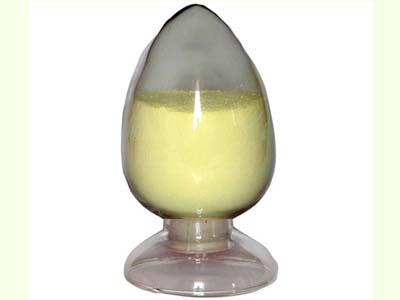Apigenin as Tumor Suppressor in Cancers: Biotherapeutic Activity, Nanodelivery, and Mechanisms With
REVIEW article
Front. Chem., 15 October 2020 | https://doi.org/10.3389/fchem.2020.00829
1Department of Basic Science, Faculty of Veterinary Medicine, University of Tabriz, Tabriz, Iran
2Student Research Committee, Shahrekord University of Medical Sciences, Shahrekord, Iran
3Department of Medical Genetics, Faculty of Medicine, Tabriz University of Medical Sciences, Tabriz, Iran
4Sabanci University Nanotechnology Research and Application Center (SUNUM), Istanbul, Turkey
5Centre for Micro-BioRobotics, Istituto Italiano di Tecnologia, Pisa, Italy
6Department of Medical Nanotechnology, Faculty of Advanced Technologies in Medicine, Iran University of Medical Sciences, Tehran, Iran
7Department of Pharmacy, Abdul Wali Khan University Mardan, Mardan, Pakistan
8Department of Analytical Chemistry, Faculty of Chemistry, University of Kashan, Kashan, Iran
9Department of Medical Biotechnology, Faculty of Medicine, Arak University of Medical Science, Arak, Iran
10Research Center for Biochemistry and Nutrition in Metabolic Diseases, Institute for Basic Sciences, Kashan University of Medical Sciences, Kashan, Iran
Pancreatic cancer is the most lethal malignancy of the gastrointestinal tract. Due to its propensity for early local and distant spread, affected patients possess extremely poor prognosis. Currently applied treatments are not effective enough to eradicate all cancer cells, and minimize their migration. Besides, these treatments are associated with adverse effects on normal cells and organs. These therapies are not able to increase the overall survival rate of patients; hence, finding novel adjuvants or alternatives is so essential. Up to now, medicinal herbs were utilized for therapeutic goals. Herbal-based medicine, as traditional biotherapeutics, were employed for cancer treatment. Of them, apigenin, as a bioactive flavonoid that possesses numerous biological properties (e.g., anti-inflammatory and anti-oxidant effects), has shown substantial anticancer activity. It seems that apigenin is capable of suppressing the proliferation of cancer cells via the induction of cell cycle arrest and apoptosis. Besides, apigenin inhibits metastasis via down-regulation of matrix metalloproteinases and the Akt signaling pathway. In pancreatic cancer cells, apigenin sensitizes cells in chemotherapy, and affects molecular pathways such as the hypoxia inducible factor (HIF), vascular endothelial growth factor (VEGF), and glucose transporter-1 (GLUT-1). Herein, the biotherapeutic activity of apigenin and its mechanisms toward cancer cells are presented in the current review to shed some light on anti-tumor activity of apigenin in different cancers, with an emphasis on pancreatic cancer.
Front. Chem., 15 October 2020 | https://doi.org/10.3389/fchem.2020.00829
1Department of Basic Science, Faculty of Veterinary Medicine, University of Tabriz, Tabriz, Iran
2Student Research Committee, Shahrekord University of Medical Sciences, Shahrekord, Iran
3Department of Medical Genetics, Faculty of Medicine, Tabriz University of Medical Sciences, Tabriz, Iran
4Sabanci University Nanotechnology Research and Application Center (SUNUM), Istanbul, Turkey
5Centre for Micro-BioRobotics, Istituto Italiano di Tecnologia, Pisa, Italy
6Department of Medical Nanotechnology, Faculty of Advanced Technologies in Medicine, Iran University of Medical Sciences, Tehran, Iran
7Department of Pharmacy, Abdul Wali Khan University Mardan, Mardan, Pakistan
8Department of Analytical Chemistry, Faculty of Chemistry, University of Kashan, Kashan, Iran
9Department of Medical Biotechnology, Faculty of Medicine, Arak University of Medical Science, Arak, Iran
10Research Center for Biochemistry and Nutrition in Metabolic Diseases, Institute for Basic Sciences, Kashan University of Medical Sciences, Kashan, Iran
Pancreatic cancer is the most lethal malignancy of the gastrointestinal tract. Due to its propensity for early local and distant spread, affected patients possess extremely poor prognosis. Currently applied treatments are not effective enough to eradicate all cancer cells, and minimize their migration. Besides, these treatments are associated with adverse effects on normal cells and organs. These therapies are not able to increase the overall survival rate of patients; hence, finding novel adjuvants or alternatives is so essential. Up to now, medicinal herbs were utilized for therapeutic goals. Herbal-based medicine, as traditional biotherapeutics, were employed for cancer treatment. Of them, apigenin, as a bioactive flavonoid that possesses numerous biological properties (e.g., anti-inflammatory and anti-oxidant effects), has shown substantial anticancer activity. It seems that apigenin is capable of suppressing the proliferation of cancer cells via the induction of cell cycle arrest and apoptosis. Besides, apigenin inhibits metastasis via down-regulation of matrix metalloproteinases and the Akt signaling pathway. In pancreatic cancer cells, apigenin sensitizes cells in chemotherapy, and affects molecular pathways such as the hypoxia inducible factor (HIF), vascular endothelial growth factor (VEGF), and glucose transporter-1 (GLUT-1). Herein, the biotherapeutic activity of apigenin and its mechanisms toward cancer cells are presented in the current review to shed some light on anti-tumor activity of apigenin in different cancers, with an emphasis on pancreatic cancer.
